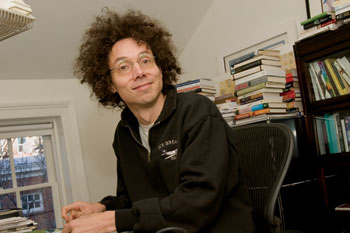Are we going to miss newspapers?
 This morning on Mobylives, I found an essay by The Nation‘s book editor, John Palattella, about how everyone in the publishing, books coverage and bookstore world has been wringing their hands since 2007 because of the kindle and the disappearance or reduction of many newspapers’ books sections and, of course, the advent of HTMLgiant. (OK maybe he doesn’t read us, yet.) But Palattella is optimistic in the essay and disagrees with the idea that reduced newspaper coverage of books is representative of larger cultural problems.
This morning on Mobylives, I found an essay by The Nation‘s book editor, John Palattella, about how everyone in the publishing, books coverage and bookstore world has been wringing their hands since 2007 because of the kindle and the disappearance or reduction of many newspapers’ books sections and, of course, the advent of HTMLgiant. (OK maybe he doesn’t read us, yet.) But Palattella is optimistic in the essay and disagrees with the idea that reduced newspaper coverage of books is representative of larger cultural problems.
Palattella writes, “I think there’s no better time than the present to be covering books. The herd instinct is nearly extinct: newspapers inadvertently killed it when they scaled back on books coverage en masse; and the web, for all its crowds and their supposed wisdom, is a zone of unfederated cantons. The field is wide open. If you can’t take chances now, if in such a climate you can’t risk seeking an air legitimate and rare, when can you?”
Maybe this is news to readers of The Nation but, yeah, tell me something I don’t already know.
Still, I think I will miss print coverage of books. I am going to miss the days when a damning or rave review in The New York Times was something that a lot of people knew about whether or not they agreed with it. It’s like having a rich, arrogant bully on the playground that we can all love to hate together, but secretly hope she’ll invite us to her birthday party because she has the best toys. Plus it’s really fun to say Michiko Kakutani. Am I alone in this? If there’s no herd (and it seems less and less like there is) what can we point to as the mainstream? Does that even matter?
Standing Ovation For Maureen Tkacik’s “Gladwell for Dummies”

What, me huckster?
Tkacik’s indictment of Gladwell is incisive, epic, merciless, and right. It runs a full seven web pages and is worth reading every word. Now, the next time you see someone reading Blink and reflexively go to slap it out of their hand, you’ll be able to explain why you did it. Here’s a choice gleaning from fairly late in the piece. Click through to start at the beginning.
Also, it’s worth looking at this piece in light of this website’s ongoing discussion of what good criticism can or should look like. The piece is occasioned by the publication of Gladwell’s new book, Outliers, but it could hardly be considered a mere “review” of that book. And yet, it’s not a NY/LRB-style essay, where the book(s) provide a sort of anchor for a larger discussion about something else. Tkacik seems completely at ease in Gladwell’s catalogue, moving with an apparent lack of effort through and between his books. She has a clear thesis that is developed, amplified, and otherwise nuanced over the course of the essay. A writer who disagrees vehemently with Tkacik’s thesis and all her supporting arguments–or a writer who couldn’t care less about Gladwell one way or the other–still has a lot to gain from reading this essay. It’s a stand-out example of a particular kind of long-form criticism.
November 7th, 2009 / 3:45 pm
Over at The Nation, Scott Saul makes the case for Eliot Weinberger’s new collection of essays.
The pieces in Oranges and Peanuts for Sale cover a wide range of topics–the arts under the Bush administration, Obama’s presidential campaign, ancient and contemporary Chinese poetry, the color blue, exoticism, the relationship between Samuel Beckett and Octavio Paz–but are knit together by a sensibility that prizes exactitude in its formulations yet is open to the unpredictable complications of the larger world. Put another way: weak prose and parochialism are two of Weinberger’s chief enemies. One of the delights of reading his essays is that they reveal the interconnections between the two; the Wittgensteinian idea that the limits of one’s language are the limits of one’s world becomes, in his hands, a tool for revealing the blind spots common to our culture.
I’m sold.
The Nation Spring Books Issue…

On the origin of awesome beards.
…is on stands now. I haven’t seen a hard copy yet, but if you click over to their website the top story is an essay by William Deresiewicz, for whose critical writing I expressed much love in a previous post. Here’s a meaty little excerpt from “Adaptation: On Literary Darwinism.”
Human beings expend an enormous amount of energy doing things that don’t seem to have any survival value: singing, dancing, painting caves, decorating spears and, above all, telling stories. (Think how much time you spend consuming fictional narratives–novels, movies, TV shows–in one form or another.) The nascent field of Darwinian aesthetics seeks to account for the art-making impulse in evolutionary psychological terms. If art is a product of the mind, and the mind is a product of evolution, then art is a product of evolution. Again, as an intellectual project, this is perfectly valid. But there are also strong selection pressures pushing in the direction of such an approach. Evolutionary thinking is, at present, an aggressively expansive species within the academic world, a kind of emergent Homo sapiens outcompeting the old-school Neanderthals across a wide swath of intellectual territory. Having colonized the social sciences–where it has begun to displace the view, predominant throughout the twentieth century, that the mind is a highly malleable product of culture–it has now set its sights on the humanities, the last area of resistance.
When the Whip Comes Down: William Deresiewicz Reviews Mary Gaitskill’s Don’t Cry

There's a heaven above you, baby.
I read “When the Whip Comes Down” in The Nation yesterday, and I think it’s well worth sharing, not so much because it matters whether Deresiewicz “likes” Mary Gaitskill (he does) or the new book in particular (he doesn’t), but because I think the piece itself is a shining example of a particular kind of critical writing, more or less in its optimum form. Though he’s fit his thoughts into a review-length essay, I think Deresiewicz has given us a valuable piece of criticism-proper. You come away from the review with a substantially enlarged and nuanced understanding of Gaitskill’s work, even if you’ve read it all before (and I have, except for the new one). I also think any aspiring critic looking to hone her skills (and I’ll go ahead and count myself among this number) stands to learn quite a lot from reading Deresiewicz and understanding how he works. After you’ve read “When the Whip Comes Down,” you should click-through on his name at The Nation website and check out his previous work for them. Critics are like any other kind of writer–if you’re lucky enough to find a good one, read up.
“How Wood Works: The Riches and Limits of James Wood” (11/19/08)
“Homing Patterns: Marilynne Robinson’s Fiction” (9/24/08)
“Fuku Americanus” – on Junot Diaz (11/08/07)
Gaza, Day 12 & Counting

I think I almost made my mother cry on the phone the other night when–in a non-twist which surprised absolutely nobody–I explained my opposition to the present war. Probably this is because I used fiery invective and very few statistics or facts of any kind, but that’s what happens when you have an argument while cooking dinner. For what it’s worth, no statistics or facts of any kind were marshalled against me, but in any case, making my mother angry/sad was not the goal of the conversation, so later I sat down and tried to find some things online to send her that would make my case in a more nuanced and articulate way, not just because I thought she should be exposed to the information, but because I thought that I should.
This short comment-piece by Akiva Eldar, published first in Hebrew in Ha’aretz and then translated to English by Jessica Cohen for The Nation seems to me to have said what a better-informed, less irate version of myself would have said, and what this version of myself wishes he would have said. I have a copy of the book Eldar wrote (co-wrote, actually, with Idith Zertal), Lords of the Land: The War over Israel’s Settlements and the Occupied Territories 1967-2007 sitting on my shelf, but I haven’t read it. Yet.
You might also take a look at the BBC’s Key Maps and Timeline (from which above-image is borrowed)
the meanest soldier in the woods
My first Mean Week post is totally cheating because I’m not going to be mean and, instead, shall direct you to my favorite Mean Poet: Joseph Massey. Joe lives in the woods in Northern California where he is like a gentle Swiss bear. He drinks taco beer and sculpts word machines of fern-smelling delicacy. But on the internet! O Lord. On his LiveJournal blog, Mr. Massey is a cranky son-of-a-bitch and not afraid to take it to your ass with a whip made of questionable meat products. Witness this gristle he dropped recently into a favorable review of Peter O’Leary’s memoir:
It’s an antidote to so much of the bullshit that counts as what it seemingly must mean to be a poet these days, thanks in huge part to the MFA android machine. It’s a palate cleanser after spending too many hours — shame on us! — reading blogs where you come away disgusted, as if you had just eaten a pillowcase full of cotton-candy washed down with generic cola, as if poetry can be reduced to the ego-bloated emptiness of notices of acceptance and rejection by journals and magazines that are mostly amorphous blobs of visionless shit, mirroring the very system that supports them, and the endless crowing over the scramble to get books published that no one will read because their only audience is a CV.
Joe’s even got a poem coming out in The Nation, so you know his agenda is like political and shit. That’s right, Blake, political.

